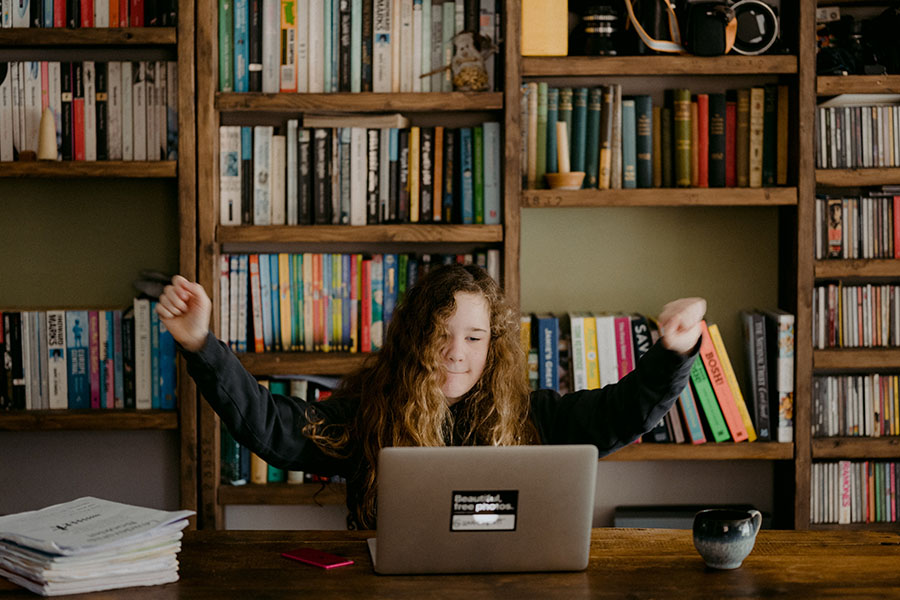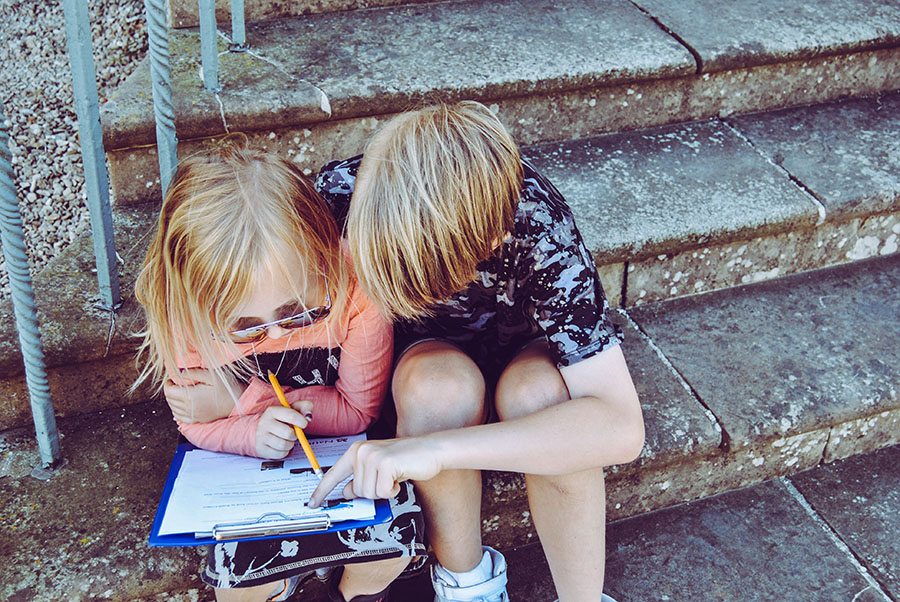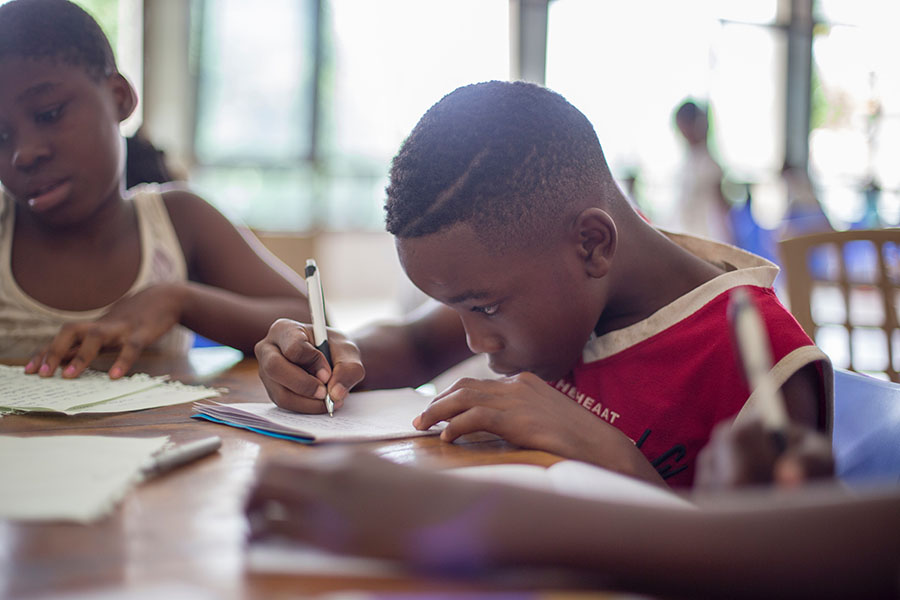
Are you a parent who is having a hard time deciding between homeschooling your kids and sending them to public school? Well you are not alone! This decision can be though for many parents out there, because both types of education have their advantages and disadvantages.
What really makes homeschooling and public schooling different from each other? The two types of education are very different in a lot of aspects but are the same in others. I’m going to go deep, comparing the pros and cons between the two types of education within topics like academics, and socialization, and hopefully the results will be able to help you if you are having a hard time choosing between the two. You might find one of the options better than the other.
A lot of people have wondered which type of education is better for their children. Most people think that public schooling gives out the best education which is why it is so popular, but that is not always true. There are many aspects to homeschooling and public schooling that makes them different from each other.
Normally homeschooled parents begin to homeschool because they think that the public schooled systems are not good enough for their children. Many studies have been done comparing the two students academically. Normally homeschooled students do better on academic tests, and have a higher GPA. But not many studies have compared any other aspects of homeschooling vs public schooling.
The Pros and Cons

A pros and cons list is one of the best ways to help you decide which type of education is best for you and your child. Homeschooling and public schooling both have so many pros, but of course have those counter cons that make them different from each other. So here is my pros and cons list to homeschooling and public schooling, starting off with the pros.
Pros
| Homeschooling | Public Schooling |
| One on one teaching and learning | Legal in most countries |
| Control of the curriculum | They have access for all students |
| Much more freedom | Extracurricular activities |
| Stronger parent-child bonds | Socialization |
| Effective and efficient learning | Easier for parents |
| Independence | Allows both parents to work |
| Well rested children |
Homeschooling Pros
When you homeschool your child, you are getting to do one on one learning with them. One on one learning allows you to get to know your child and discover their type of learning styles, and that will help you get to know them better and teach them in the best way possible. One on one learning allows your child to step up, and not rely on others when they are being taught. It lets them learn in a non stress environment where they are not trying to compete with their classmates through projects and tests. In public schools, teachers don’t get to know their students that well, and they never do one on one learning, so homeschooling gives the student that unique opportunity.
Another major benefit of homeschooling is that you normally get to choose the curriculum for your child. This allows you to pick topics that may interest your child instead of learning things that they might find really boring. They can chose their own topics based on interests, and explore new ideas and concepts without having too much barrier. Overall homeschooling gives parents a lot more freedom to teach in the way that they think is best for their child. Being your child’s teacher along with being their parent can be hard sometimes, but you begin to form a special bond with them after spending lots of time together.
Homeschoolers tend to get through work faster and more efficiently. This is because they don’t have the same distractions that there are in classrooms. The homeschool student is able to work at their own pace which can help them understand concepts better. Homeschoolers are also more independent and have more independence throughout their learning process. As they get older homeschoolers begin to do projects on their own and have a lot of independence on what they choose to learn and work on.
Homeschoolers normally get more rest than public schoolers, because they are allowed to wake up at their natural wake up time. They don’t need to rush in the mornings they can even get up a lot later than public schooled students and still start school at the same time public schools start.
Public Schooling Pros
Unlike homeschooling, public schooling is legal in most countries around the world. It is probably the most common education there is out there, and is 100% accepted if your child goes there, which is why most parents enrol their children there. Public schools make it easy for parents to work during the day while kids get a free education, which is pretty amazing. It is completely normal to be enrolled in public school, and when someone asks what school you go to, they will not question it. No one will be judging you for attending or sending your kids to public school. Public schools are available to all students and is not expensive besides the typical school supplies. There are many many extra curricular activities in public schools, they have everything from drama clubs to sports to choirs.
The extracurriculars at public schools are a huge pro compared to homeschooling, mainly because they have so many more options for activities. Often in public schools there will be lots of sports teams, clubs, choirs, and plays that tend to be after school activities for fun. Socialization is another big pro for public schools. In public schools students get to see their friends every day, and it is also much easier to make new friends that way. If your child has a fight with their friends, they can easily meet and make new friends to hang out with.
Parents don’t need to put much effort into finding ways for their children to make friends, they simply just need to take them to school every day. This brings me to my next point, which is that going to public school is much easier for parents. They don’t need to make curriculum, or teach their children. Normally they will have to volunteer at some point, but the effort that parents have to put into homeschooling is much more work. Another great thing about public schooling is that it allows both parents to work. Wether they are working from home or both going to an office, it is much easier for both parents to work if their kids are at public school everyday.
Cons
| Homeschooling | Public Schooling |
| What people will say and think | TESTS, EXAMS!!! |
| Socialization | A lot of stress |
| A lot of work for parents | Big classes |
| Can be expensive | Peer pressure |
| A lot of together time (too much?) | No flexibility (follow the rules) |
| Record keeping | Early mornings |
Cons of Homeschooling
We have all heard the homeschooling stereotypes, and to the people who don’t know much about it, they probably believe those stereotypes. Since homeschooling is not exactly an accepted type of education in a lot countries, and it is not super popular yet, a lot of people don’t agree with it. People can be really judgy when it comes to homeschooling, so a very annoying con would be the looks and questions you will get asked, and even sometimes mean comments. (Read my post about things homeschoolers are tired of hearing).
Socialization can sometimes be a con. I know it is a big stereotype, but there homeschoolers do not see their friends as much as public schooled students, who see their friends 6 hours straight, 5 days a week, which can even be too much for some people. Homeschooled students don’t socialize as much, but they 100% still have social lives and do often get together with other homeschoolers, it just requires a little bit more work for the parent to plan activities, or enrol their child in extracurricular classes.
For parents, homeschooling is a lot more work and normally more expensive than sending their kids to public schools. They need to plan out everything from day schedules to curriculum to projects and activities. You basically have taken on the roles of being a teacher. But to some parents this work is fun and satisfying, because they know that what they are doing will benefit their children in so many ways.
Parents are with their children, especially younger ones, all the time. This can be considered a pro and con actually because sometimes it is fun but sometimes it can get tiring. You might become tired of being with your child or parent for so long, but this should not be a reason not to homeschool. Homeschool parents need to keep track of all the subjects, classes, activities and projects that their kid has done throughout their years of homeschooling, if their kid plans to go to university. Homeschoolers can use this as their transcript because they are not getting an automatic one when they are applying to university. But keeping track of everything their child has done can be a lot of work.
Cons of Public Schooling

Public schools often have many tests and exams, which is something students do not look forward to, and it can often cause a lot of stress. They are told to memorize instead of understand and learn the concept for a test, but after the test students forget most of it. In high school, students will spend hours on homework and studying each day, just so that they can get a good grade.
Often they spend so much time worrying about their grades that students won’t even understand the concept they are learning. Because of all the tests and homework students get, they have less time to explore and discover their own interests which is something that is really important for growing kids to learn. A lot of anxiety and stress problems that public schooled students have are caused by tests, exams, projects and presentations.
In public schools students have the opposite of one on one learning. They are in a big class with 20 or more other classmates, so teachers don’t have much time to spend with each individual student. Public schooled students tend to depend on others in their class, and feel like they have to compete with their peers when working on projects. Plus teachers tend to go through subjects too fast for some people and too slow for others. If a student doesn’t understand the subject their class is learning, they might never get the chance to because the class might have moved on too quickly for them.
A lot of students experience peer pressure if they attended a public school, private school or catholic school at some point in their lives. Most high schooled students feel as if they have to act a certain way and wear the types of clothes that are in style, so that they can be popular. When other things start to become involved, peer pressure can cause them to make bad choices. If they don’t follow these ‘rules’, students might be bullied or made fun of because of it.
At public schools, students don’t have that much flexibility for what they learn. They just need to go along with whatever they are taught. In high school they will be able to choose a few of the subjects to learn, but within those subjects they will need to stick to the exact guidelines of what they are being taught. Most public schools don’t do projects based learning, or independent learning.
The last con for public schools is the early mornings. Often kids and teens will have to get up super early so that they can get to school on time. This all depends on how they get to school and, of course, how close they live to their school, but every morning public schoolers need to get dressed, eat, possibly make lunches, brush teeth, maybe do some more homework or studying, and then they need to get to school. This whole process can take hours. And of course, if they have stayed up late studying and gotten up early to get to school, public schooled students probably don’t get enough sleep, which can cause them to preform worse in school, and worsen their overall health.
Stats Comparing Homeschooling and Public Schooling

So if you have read about the advantages and disadvantages of homeschooling and public schooling and still can’t make a decision, finding out some stats might help. Homeschooling is not as popular as public schooling currently. Around 90% of American students attend public school, whereas 3.4% of American students are homeschooled. The reason homeschooling is not as popular as public schooling is because it used to be illegal, but since it has started becoming legal in many countries the popularity of homeschooling has been growing at a high rate of 2% to 8% per year.
Academics
There are so many academic stats on homeschooling vs public schooling. There have been lots of academic studies done comparing the scores of homeschoolers and public schoolers, on exams, tests and gpa’s. I have found so many articles about the academics of homeschoolers vs public schoolers, so I will share a few of the most interesting ones.
There was a study done in the U.S. in 2010 conducted by Dr. Brian Ray, one of the founders of the National Home Education Research Institute. In the study they had a sample of 11,739 homeschooled students who took 3 well known tests across the country. The study found that the homeschooled students scored much higher on these tests compared to the public schooled students. Here is a chart of the mean scores, in percentiles, that both types got.
So as you can see, homeschoolers have a mean, scoring between the 80th and 90th percentile on all the academics. And the public schooled students mean was in the 50th percentile. So homeschoolers scored much higher than public schoolers.
A Canadian study compared 74 students in Nova Scotia and New Brunswick, 37 who were homeschooled and 37 who were in public school. The students were between the age of 5 and 10, and they were asked to do a standardized test. The public schooled students that they assessed scored above average for their age level. Within the homeschool category, there were 25 structured homeschooled students and 12 unstructured homeschooled students (ie. unschoolers).
The results showed that the structured homeschoolers preformed much higher than the public schooled students. The average of all of the structured homeschoolers were half a grade ahead in math and 2 grades ahead in reading. The unstructured homeschoolers did worse than structured and public schoolers.
Homeschoolers also tend to score higher on ACTs and SATs. The average homeschoolers scores 72 higher than the national average for an SAT. And they score 22.8 points on ACTs and public schooled students score 21 points on ACTs. (An ACT is made out of out of 36 points).
So overall, most of these academic studies have proven that homeschoolers do really well on tests, exams and much more. Public schooled students may also do well, but homeschoolers might have won this one. These studies have shown that homeschoolers can often do even better than public schoolers.
Socialization

Homeschoolers might score higher on standardized tests, but not everything is about grades. There have been lots of stereotypes about homeschooling and socialization, and while most of it is not true, homeschoolers are not always as social as public schoolers. Because public schooled students are with their peers all day, they tend to spend more time with socializing compared to homeschooled students. Sure homeschoolers have weekly get togethers and hang out lots, but it is kind of hard to beat spending 6 hours a day with their peers.
In some cases though, this might be too much for your child to handle. Some people need to have more desocializing time than others, it simply depends on their personality. I am not saying that homeschoolers are not social, but they tend to have less opportunities to hang out with their peers.
So if your child needs to be social all the time though, maybe you should be leaning towards public school as the better option for them. It is not impossible to find social opportunities as a homeschooler though, it just takes a bit more effort. If there is a homeschool group in your community, you can connect with them and see if there are any activities going on that you and your kids can join in on. Most areas have homeschool communities now, but if not, consider starting your own. You can also enrol your children in extracurricular activities outside of class times, so they can meet other students who might not be homeschooled.
Though they might not spend as much time with their peers every day, homeschoolers tend to have great social skills. Another study done by NHERI about social skills found that homeschoolers have better social skills than public schooled students. They had 70 homeschool participants, who were from grade 3 to 6, do a self report to determine how good their social skills are. They also had 1,170 public schooled students do the self report. The self report had items like “I make friends easily,” and “I feel sorry for others when bad things happen to them,” and the children answer with never, sometimes, or very often.
The results showed that homeschooled students’ score for all the ages was consistently higher compared to the public schooled students which means that the homeschooled students’ who did this test overall have better social skills and tend to be more mature.
Teachers
What is the difference between a homeschool teacher and a public school teacher? Well, public school teachers often focus around scoring high and getting good grades, but they also care about their students and want to see them succeed. As a parent, you might be wondering if your child’s teacher will be good enough for them, and normally public school teachers are nice, and they love teaching. Being a homeschool teacher you might have more reassurance that you are teaching your child in the best way possible, but I am sure that most teachers too, want to teach their students in the best way possible.
Are you questioning wether you are qualified to teach your child? You might be leaning towards public school because you don’t have a teaching certificate, but that does not matter. A study was done in 2009, conducted by Dr. Brian Ray, where they evaluated 11,000 homeschooled students. They grouped the students based on wether their parents have no degrees, one parent has a degree and two parents have a degree. Students with parents who had one degree scored 3% better, and students with parents who had both degrees scored 4% higher, but this is not that big of a difference.
Another study done by NHERI compared homeschooled students who had parents with a degree, and parents with no degree. The students with parents who had no degrees scored in the 88th percentile, and the students with parent who have one or both have degrees scored in the 87th percentile. So really the education level of the parents does not matter, and you do not need to be certified to teach your children.
What is the Right Choice For You?
You have to take everything into consideration when you are choosing which type of education is best for your child. Remember don’t just make a choice based on what you want to do, make sure that your child is on board with the plan. So homeschooling has a lot of things that public schooling doesn’t have, and vice versa. Homeschooling gives you more freedom, but might be a little bit harder to do because it is not as popular and maybe even not completely legal in your country. (The reason homeschooling is not as popular as public schooling is because it used to be illegal, but since it has started becoming legal in many countries the popularity of homeschooling has been growing at a high rate.) The academic results of homeschooled students are incredible, but finding socialization options can be harder.
Public schools give so many opportunities for extracurriculars, clubs, and activities, but they can cause a lot of stress because of tests and exams. They make it easy for kids to get a free education and meet new friends while parents can work for 6 hours 5 days a week, but this also means kids have to wake up super early to get to school in time and often don’t get enough sleep.
Maybe you have specific reasons for considering homeschooling over public schooling. Do you want to integrate religion into learning, or does your child have special needs that makes you think they would be better off at home? Consider all of these things, and weigh out the pros and cons, and hopefully you will be able to pick which type of education will suit you and your child best.
